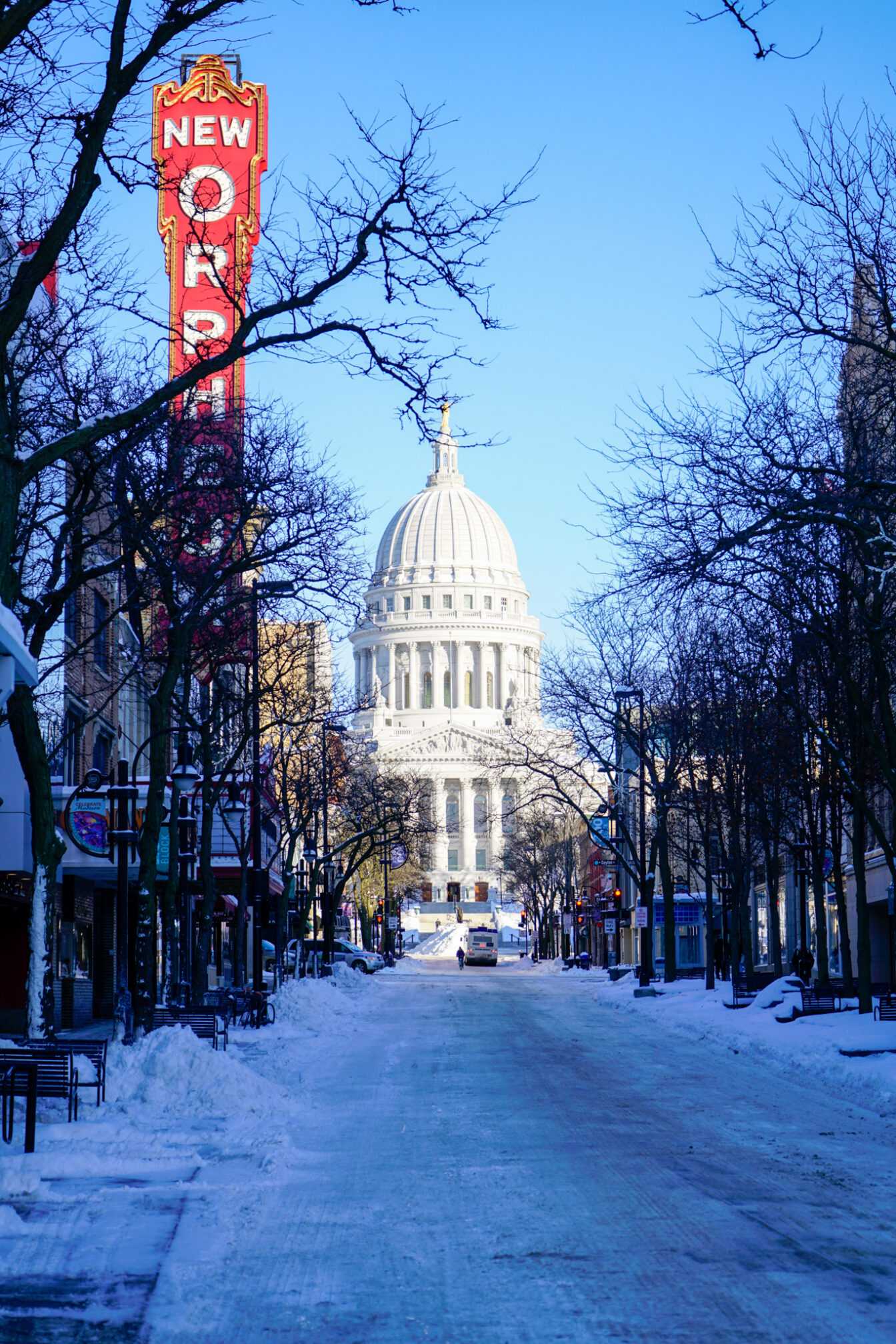Wisconsin Democrats introduced a piece of legislation Jan. 25 that would require schools to teach comprehensive sexual education, according to Wisconsin Public Radio. Current attempts by the Democratic Party are indicative of the Healthy Youth Act, a former state law that was repealed by Republicans in 2012.
The bill would ensure educators discuss topics including family communication about sexual choices, puberty, media impacts on thoughts, feelings and actions, safe sex options and more, according to Wisconsin Public Radio.
Susan S. Engeleiter Chair in Education Law, Policy and Practice at University of Wisconsin Suzanne Eckes said a high amount of high school students in Wisconsin — around 12 out of every 30 — have had sex. Eckes said K-12 schools can be important partners with parents to educate students about sex after high school.
Transcript: Sen. Roys, Rep. Andraca discuss new campus firearm bill
Mia Warren is the chair of Sex Out Loud, a peer-to-peer sexual health service at UW. The access younger generations have to online websites and social media platforms such as TikTok has created a greater need for formal sex education, Warren said. The average age in which adolescents are being exposed to pornography and sexual content has lowered drastically due to ease of internet access, Warren said. Relying on unofficial online sources, young social media users may develop misconceptions about safe, healthy sexual habits.
Warren said implementing a more comprehensive program covering topics such as sex and contraception could help reduce teenage pregnancies and sexual assault rates while also fostering a more inclusive environment for discussing sexual concepts, Warren said.
For current UW students who haven’t received formal sexual education, Warren said trusted resources such as faculty members, medical providers or peer-to-peer groups like Sex Out Loud can offer comparable support to what a sexual education program in K-12 schools would provide.
Even in school districts that do offer sex education, Eckes said state legislation can present equity issues in how marginalized groups receive sexual education information. This is a result of how a majority of education laws are managed by individual states instead of being overseen federally.
“We certainly have federal laws that influence education policy … but most of the work is done at the state, local level so state sex education standards and public schools really vary widely both at the state level and the local level,” Eckes said.
Gov. Evers releases UW faculty, staff pay raises after nearly 6 month delay
To help improve the likelihood of the bill’s success should it be passed, evidence-based policies should be implemented alongside legislation that would prioritize equal access to sexual education, Eckes said.
But, UW Philosophy professor Harry Brighouse said the success of a sexual education curriculum is heavily influenced by the quality of the faculty leading or instructing it, and that many faculty members would be cautious in said instruction due to the current political climate of the state. With political divides surrounding sexual education in schools, instructors — especially in smaller districts where parents know the teachers — often opt for saying the “safest thing” over the most informative, Brighouse said.
Despite these concerns, Brighouse said sexual education is important to prevent ignorance regarding sex and sexuality — even if the current implementation of sexual education in Wisconsin is fairly ineffective.
Warren said in addition to future students becoming more educated in sexual matters, current students could be motivated to engage in social activism or become more open about their sexuality as a result of this legislation.
“I think [people should be] open and asking questions, because there’s so many answers out there and I think people are just really afraid to ask, and it’s important to trust who we’re asking,” Warren said.
Struggle over shared governance continues at UW, inside Capitol
Brighouse said to maximize the effectiveness of the bill if it is passed, the Wisconsin Department of Public Instruction should receive sufficient resources and employees to assist local school districts with implementing sexual education effectively. Brighouse said administrative figures such as principals should also be well-educated in sexual topics in order to fully realize the curriculum of such a bill.
“I agree with the underlying thought which is, ‘you’ve got to try and do something,’” Brighouse said. “And this is something you can do — making sure that teachers are trained and that principals learn how to navigate these kinds of issues with their communities better.”


















